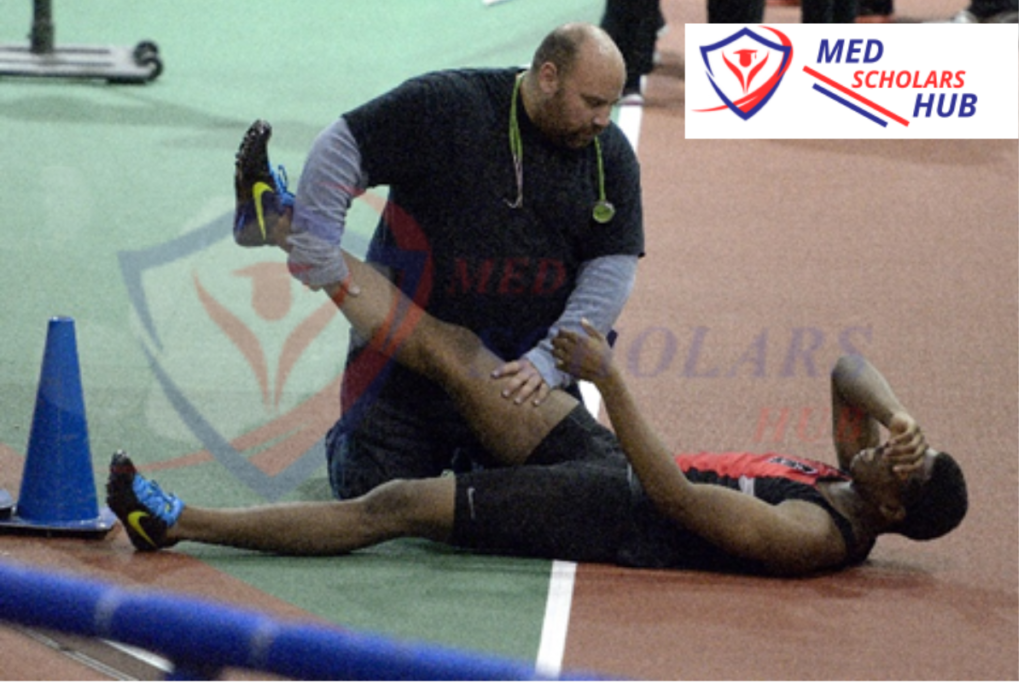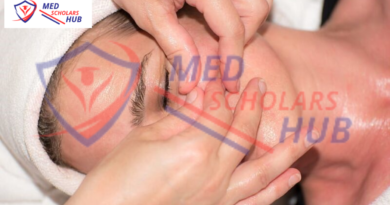What Medical Education Do You Need to be Sports Medicine Physician?
A doctor of medicine (MD) or doctor of osteopathic medicine (DO) degree is normally required to practice as a sports medicine physician. This is followed by a residency in family medicine, physical medicine and rehabilitation, or internal medicine, and finally a sports medicine fellowship.
Sports medicine is a specialized area of medicine that is concerned with preventing, diagnosing, treating, and recovering from injuries sustained during physical exercise and sports. An expert in the field of medicine who offers complete care to athletes and active people is a sports medicine physician. A certain medical education and training are needed to become a sports medicine physician. The educational requirements to become a sports medicine physician will be discussed in this article.
What is a Sports Medicine Physician?

Those who specialize in providing medical care to athletes and anyone who participate in sports or physical activities are known as sports medicine physicians. They are well-versed in the particular demands of various sports, exercise physiology, sports nutrition, and musculoskeletal ailments. Sports medicine doctors collaborate closely with athletes to prevent, identify, and treat injuries sustained during competition as well as to improve their overall health and performance.
Medical Education You Need to Become a Sports Medicine Physician:
To become a sports medicine physician, you need to complete several stages of medical education and training. The following are the key steps in the educational journey:
Bachelor’s Degree: A bachelor’s degree in a science-related subject, such as biology, chemistry, or kinesiology, is the first step. It gives you a solid scientific basis and gets you ready for medical school.
Medical School (MD or DO): You must enroll in medical school after receiving your bachelor’s degree in order to become a Doctor of Medicine (MD) or a Doctor of Osteopathic Medicine (DO). Four years are normally needed to complete medical school, which includes classroom instruction, clinical rotations, and hands-on training.
What are the Best Degrees for a Sports Medicine Physician?
The following degrees may be useful for a career as a sports medicine physician:
Medical doctor (MD): This degree emphasizes conventional medical procedures and is granted by allopathic medical institutions. MD programs have a strong emphasis on evidence-based medicine and scientific research.
Doctor of Osteopathic Medicine (DO): This degree emphasizes a holistic approach to medicine and is granted by osteopathic medical schools. OMT, a hands-on therapy used to diagnose and treat a variety of illnesses, is a skill that is taught as part of DO programs.
MD or DO Program to Become a Sports Medicine Physician
Both MD and DO programs can lead to a career in sports medicine. The choice between the two depends on personal preference and career goals. Both degrees provide a solid foundation in medical knowledge and skills necessary for sports medicine practice.
Residency & Fellowship Program in Sports Medicine
Aspiring sports medicine doctors must complete a residency program in a primary care field like family medicine, internal medicine, or pediatrics after finishing medical school. Residency is a three- to four-year program that offers practical training in a variety of medical settings.
After completing their residency, doctors can pursue a fellowship in sports medicine, which specializes in the treatment of athletes and active people. Fellowships in sports medicine typically span one to two years and include specialized training in exercise physiology, sports-related ailments, and performance improvement.
Three Highest Paying Jobs in Sports Medicine

1. Sports Orthopedic Surgeon: Orthopedic surgeons who specialize in sports medicine can make a good living performing intricate surgical procedures to address injuries sustained while participating in sports.
2. Team Physician: Working as a team doctor for professional sports organizations or university athletic programs can be financially rewarding. These jobs entail managing professional athletes’ health throughout training and contests and providing them with medical care.
3. Sports Medicine Specialist in Private Practice: Running a private practice as a sports medicine specialist gives independence and the possibility to attract wealthy patients. These medical professionals offer complete care to athletes and physically active people in their neighborhoods.
Duties of Sports Medicine Physician
The duties of a sports medicine physician include:
- Conducting medical evaluations and physical examinations of athletes.
- Diagnosing and treating sports-related injuries, such as fractures, sprains, and concussions.
- Developing customized treatment plans and rehabilitation protocols.
- Providing guidance on injury prevention, nutrition, and performance enhancement.
- Collaborating with other healthcare professionals, such as physical therapists and nutritionists, to optimize patient outcomes.
Characteristics of Successful Sports Medicine Physicians
- Thorough understanding of exercise physiology, sports medicine, and musculoskeletal issues.
- Exceptional communication abilities to work well with coaches, players, and other medical professionals.
- Strong analytical skills to identify and treat challenging sports-related diseases.
- Care and compassion for the physical and mental health of athletes.
- Dedication to lifelong learning and keeping current with sports medical research and developments.
Last Words:
A thorough medical education and specialized training are required to practice sports medicine. It entails earning a bachelor’s degree, finishing medical school (MD or DO), undertaking a primary care residency, and then honing your skills with a fellowship in sports medicine. Aspiring sports medicine doctors can improve the health and performance of athletes and active people with the correct education, training, and commitment.




